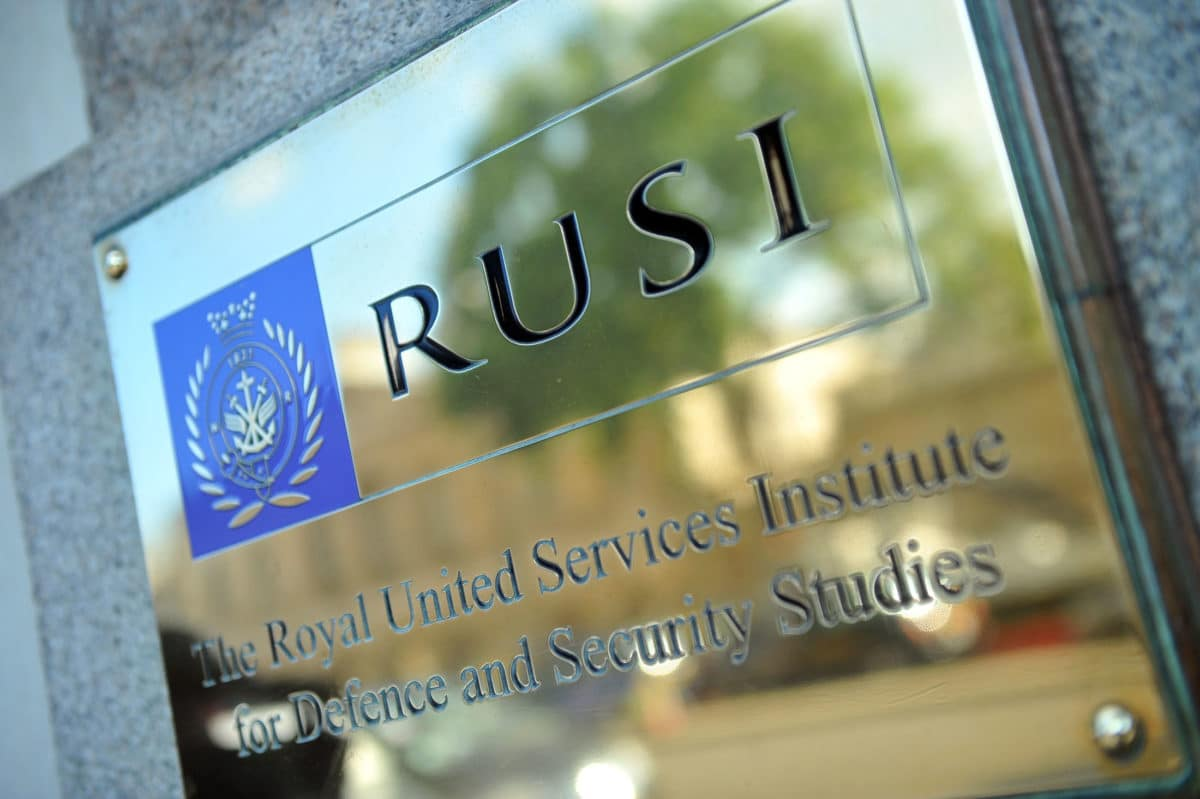Royal United Services Institute: It’s Time to Impose Sanctions on Those Abusing Libya’s Sovereign Interests

The Royal United Services Institute (RUSI) stated that reappointing Seddiq Al-Kabeer as Governor of the Central Bank of Libya will not solve the country’s problems. One proposed solution is for Al-Kabeer to temporarily resume his position until the House of Representatives in Benghazi and the High State Council in Tripoli, which together form a joint legislative body, choose his successor.
The institute added that it is time to sanction those responsible for state capture in Libya. However, even if such a solution were feasible, it would not begin to address the issue of state capture that Libya has fallen into under the leadership of Prime Minister Abdul Hamid Dbeibeh in the west and General Khalifa Haftar in the east.
As Libya battles deep-rooted issues related to state capture and corruption, the international community must take action against those looting the country’s wealth and resources.
The institute pointed to the crisis’s origin when the Presidential Council in Tripoli dismissed Al-Kabeer at Dbeibeh’s request. Dbeibeh was frustrated by al-Kabir’s refusal to provide more funds from the Central Bank of Libya to support the Prime Minister’s extravagant government. Al-Kabeer is one of Libya’s longest-serving officials, having been appointed Governor of the Central Bank in 2011. During his tenure, he oversaw the division of oil and gas revenues, which have driven the country’s politics since the fall of the Gaddafi regime. Over this period, Libya experienced cycles of civil conflict and relative stability, achieved by buying off instigators of violence and unrest.
The institute compared Dbeibeh’s attempt to remove al-Kabir to a football team captain unilaterally replacing the referee in the middle of a match. Al-Kabeer has been described as the backbone of this system, at times mitigating its worst excesses, but also acting as its chief enabler. His removal by Dbeibeh is seen as a controversial move, unsurprisingly rejected by Dbeibeh’s opponents, though this does not indicate support for the ousted governor.
In April 2021, the Libyan Political Dialogue Forum elected Dbeibeh and a three-person Presidential Council on a joint ticket to form a Government of National Unity. The goal was to bridge the divide between eastern and western Libya that emerged shortly after the revolution against Gaddafi. The new government was tasked with holding elections by December 2021 and then stepping aside. However, in the final stage of voting, the UN revealed evidence of bribery but decided to let the process continue. When the government failed to organize elections and instead clung to power, the only surprise was that no one was surprised. Over three years later, the Government of National Unity under Dbeibeh continues as it began.
The institute highlighted the most egregious example of mismanagement: handling $11 billion in emergency budgets allocated to the National Oil Corporation (NOC) with the stated goal of increasing oil production from approximately 1.2 million barrels per day to 2 million barrels per day by 2025. At the current oil price of $80 per barrel, this would add nearly $16 billion annually to the national income if sustained. In 2023, Libya earned $33.6 billion from the export of oil, natural gas, and condensates, potentially rising to $50 billion annually.
Despite the billions spent, oil production has not increased. The NOC handed over control of its sovereign resources. Since May 2024, a private company registered in Benghazi has exported five shipments of crude oil, worth a million barrels, from Marsa al-Hariga port in Tobruk with NOC approval. Farhat Bengdara, Chairman of the NOC, has yet to explain how or why nearly $400 million worth of crude oil was transferred to this company, whose ownership remains obscure. The blockade on oil export facilities across Libya by forces led by General Haftar has not disrupted this unprecedented seizure of national resources, providing a strong indication of who benefits.
The institute also mentioned that the NOC has been implicated in illegal oil sales deals to supply military drones from China, violating international sanctions. Saddam Haftar, the son of General Khalifa Haftar, was briefly detained at Naples airport in August under a Spanish arrest warrant related to the illegal importation of weapons into Libya. By stealing Libya’s oil, its revenues, and the budget for oil and gas development, officials are not just stealing money and resources—they are stealing the future of the country.
The institute noted that fuel smuggling out of Libya has drained billions from state resources since early 2015, but the problem has worsened. Since 2020, gasoline imports to Libya have doubled without any clear increase in economic activity. The NOC loses hundreds of millions of dollars through various other instances of corruption and mismanagement.
The institute warned that by stealing Libya’s oil and its revenues, and mismanaging the oil and gas development budget, those responsible are not just stealing funds—they are robbing their country’s future.
The Royal United Services Institute questioned whether the Libyan judiciary has the capability, courage, or strength to execute such actions, stating that this will not happen without international support. It emphasized that responsible actors within the international community can do much to support this necessary step, most importantly imposing sanctions on those abusing Libya’s sovereign interests.



